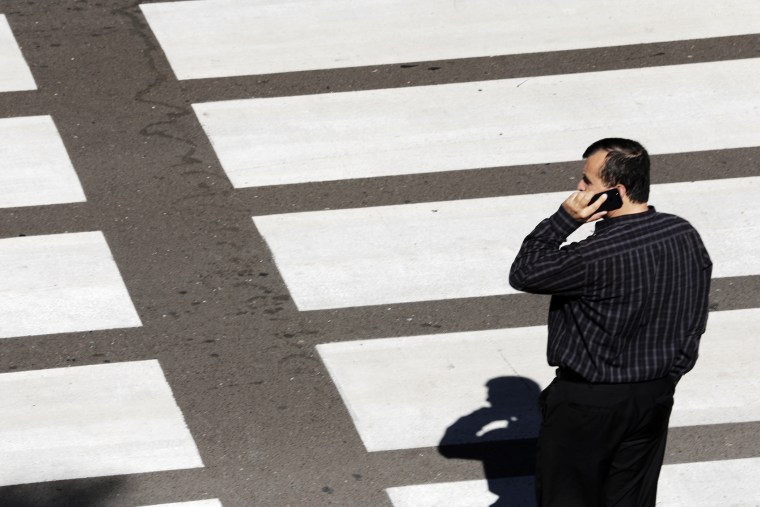A federal appeals court ruled Wednesday that police need a warrant to acquire cell phone location data, concluding such records are protected by the Fourth Amendment's prohibitions on unreasonable searches and seizures.
"While committing a crime is certainly not within a legitimate expectation of privacy, if the cell site location data could place him near those scenes, it could place him near any other scene," wrote Judge David Bryan Sentelle in an opinion for the Eleventh Circuit Court of Appeals. "There is a reasonable privacy interest in being near the home of a lover, or a dispensary of medication, or a place of worship, or a house of ill repute."
Civil libertarians have long argued that the laws governing the state's access to so-called business records have been outpaced by advances in technology that put Americans' most personal data in the hands of third parties. A 1978 Supreme Court case, Smith v. Maryland, established a concept known as "third-party doctrine." That doctrine holds that records held by a third party, such as the call records held by a phone company, are not covered by the Fourth Amendment. The court determined yesterday that unlike dialing phone numbers, individuals may not know they are transmitting location information when their phone links up to a nearby cell tower to make a call.
"If you have a smartphone you probably have no idea how often that phone is sending information to someone else."'
"What the court here realized is that your location isn't like that. You didn't dial your location in and send it to the phone company, that's something your phone registers automatically without any action on your part," said Julian Sanchez, an analyst with the Cato Institute. "The importance of this beyond location is that, frankly if you have a smartphone you probably have no idea how often that phone is sending information to someone else."
This is the first decision from a federal appeals court concluding that police need a warrant to acquire cell phone location records. State courts in Massachusetts and New Jersey have come to similar conclusions under their state constitutions, and some states like Maine and Montana have passed laws protecting cell phone location records.
Wednesday's ruling involved a Florida man named Quartavious Davis, who along with several other co-defendants was convicted after prosecutors used cell phone location records to place him in the vicinity of several armed robberies. Police routinely obtain such data with court orders that require a lower standard of proof than a warrant. Davis argued that the evidence had been obtained in violation of his Fourth Amendment rights. While the court agreed that police should have needed a warrant to obtain the records, they did not say that the evidence should have been excluded, concluding that the records were acquired in "good faith" and were not a deliberate attempt to violate Davis' rights.
Nate Wessler of the ACLU, who argued the case before the Eleventh Circuit, said the court had properly concluded that signing up for cell phone service doesn't mean giving up an expectation of privacy in your movements. "The court in no uncertain term rejects the government's argument that merely by signing up for cell phone service people abandon their privacy interest in sensitive location information," said Wessler. "The case has significance beyond cell site location information to other kinds of sensitive data we basically have no choice but to share in order to participate in modern life."
The fact that two federal appeals courts have come to different conclusions increases the odds that the matter could make it to the Supreme Court.
